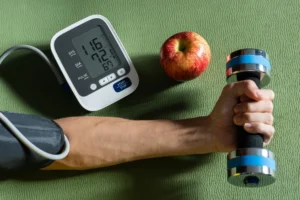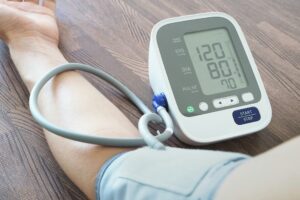Lisinopril is a medication commonly used for high blood pressure and plays an important role in controlling blood pressure and reducing the risk of heart problems. Here we will discuss the most asked question: ” Can I take an Extra Lisinopril if My Blood Pressure is High? ” As with any medication, it is important to understand its proper use and potential risks, especially when experiencing changes in blood pressure values.

Understanding Lisinopril and blood pressure
Lisinopril is a member of the angiotensin-converting enzyme (ACE) inhibitor family. These medications work by blocking the action of an enzyme that converts angiotensin I into angiotensin II, a substance that narrows blood vessels and raises blood pressure. By inhibiting this enzyme, Lisinopril helps blood vessels constrict, That’s why Lisinopril lowers blood pressure.

The importance of taking the medicine efficiently
Lisinopril dosage depends on many factors, including the severity of blood pressure, the man or woman’s response to the medication, and more. the following medications and situations. In general, patients are suggested to take the medication once a day, preferably at the same time each day, to control blood pressure.
Risks of taking more Lisinopril:
A few humans may be involved in the risks of taking extra Lisinopril while blood stress readings are unexpected. people may also consider taking extra lisinopril to solve the problem speedy. however, this method can be dangerous and is not recommended without medical supervision.
Overdose of lisinopril can also cause a drop in blood pressure, a condition known as hypotension. symptoms of low blood pressure consist of dizziness, lightheadedness, fainting, weakness, and fatigue. In severe cases, low blood pressure can cause damage to the body, especially critical organs which include the brain and heart, due to insufficient blood flow.
consult a physician in addition to trying to solve the problem on your own, make sure to consult your physician when you have high blood pressure or are concerned about your current medicinal drugs. Your medical doctor can examine your condition, review your medical history, and determine the most suitable treatment.

if your blood pressure rises temporarily, your medical doctor may also recommend lifestyle changes or different steps to help decrease your blood pressure, which include:
Lifestyle adjustments:
nutritional modifications: eat a meal. A coronary heart-healthy diet that consists of fruits, vegetables, whole grains, and lean protein can help you control your blood pressure.
workout regularly:
everyday physical activity, including brisk walking, swimming, or cycling, can help enhance cardiovascular health and lower blood pressure.
Stress control:
practicing relaxation techniques together with deep breathing, meditation or yoga can help lessen stress, thereby lowering blood pressure.
Other precautions:
In some instances, your medical doctor can also advise a temporary adjustment to your medicine to control excessive blood pressure. however, any medication changes have to be made under the guidance of a medical doctor to ensure safety and effectiveness.
Conclusion
While it could be tempting to take lisinopril in response to high blood sugar values, it is crucial to monitor safety and consult your physician earlier than making any changes to your medication. health practitioner. Taking too much lisinopril can cause side effects and complications, together with dangerously high blood pressure.
further to medicinal drugs, lifestyle changes along with healthy nutrients, regular exercising, and stress control can also play a crucial role in blood pressure manipulation. By way of working carefully together with your healthcare team and carefully monitoring your blood pressure, you could reduce your risk of complications and improve your overall fitness.
For other blogs click here
Disclaimer
The information provided on this blog regarding medicine prices and side effects is solely based on data collected from public domains. I am not a doctor or medical professional. While I strive to provide accurate and up-to-date information, I cannot guarantee the absolute accuracy or completeness of the data. It is always recommended to consult with a qualified healthcare professional or doctor for personalized medical advice and information. The content on this blog should not be considered a substitute for professional medical guidance. The readers are advised to use the information provided at their own discretion and risk. I do not assume any responsibility for any consequences arising from the use of the information on this blog.
Thank you.

